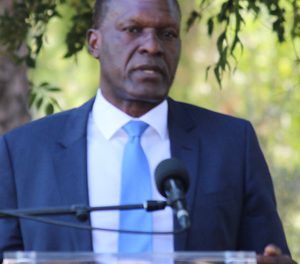
Electricity regulator warns distribution utilities to apply for tariff adjustments in time to avoid losing revenue

The Electricity Control Board (ECB) cautioned utilities on Wednesday that if they do not apply for tariff adjustments in time for the implementation of bulk tariffs, which was effective 01 July, they will lose revenue.
According to the regulator, uitilities will be selling electricity based on outdated tariffs while purchasing new tariffs, particularly pre-paid revenue collected through pre-paid sales.
The ECB urged all distribution utilities and formally requested that they apply for their annual tariff reviews before the end of May this year.
As a result, the ECB Chief Executive, Robert Kahimise, emphasized in a statement issued on Wednesday on the distribution licensee’s tariff review update for the financial period 2023/2024 that they are “cognizant” of the reality that the economy is depressed but is equally dependent on reliable and affordable electricity supply.
“It is, therefore, the responsibility of the regulator to ensure a sustainable electricity industry at affordable tariffs,” he said.
It comes as the ECB announced in May an approved average bulk tariff increase of 8.97% for the financial period 2023/2024, which resulted in an increase from an average of N$1.82 per kilowatt-hour (kWh) to N$1.99 per kilowatt-hour for the financial period 2023/2024, effective 01 July this year.
According to the regulator, the NamPower tariff increase announced in May is an average increase. They further explained that the NamPower tariff only impacts 70% of the distribution costs while 30% are costs related to the different licensees, noting that tariff applications by the distribution licensees will be linked mainly to the operational efficiencies of the specific licensee, including the level of cost reflectivity of their tariffs.
According to him, the above practice by distribution utilities is not financially sustainable, and it affects their financial ability to honour NamPower’s bills, further affecting service delivery.
Moreover, the above-mentioned average approved tariff applies to NamPower bulk customers (i.e., Regional Electricity Distributors (REDS), Local Authorities, Regional Councils, and Mines). According to the legal provisions, about 50 distribution utilities, including (REDS), Local Authorities, Regional Councils, and Farmer Schemes, are required to apply to the ECB for a review of their distribution tariffs, which, when approved, will be applicable to end consumers effective 01 July, Kahimise added.
Kahimise further explained that this entails the impact of the tariffs on the electricity supply industry, consumers, and the economy.
“In particular, the current economic climate is considered. The ECB is cognisant that prices of goods and services have been increasing, which negatively affects consumers. Equally important, is that the applicable tariffs reflect the cost of providing electricity. It is, therefore, important that the tariffs are reviewed and correctly implemented annually,” he said.
Furthermore, the ECB said the following utilities applied in time for their increases and approval, including Erongo RED, Northern Regions Electricity Distributor (NORED), CENORED, NamPower Distribution, Omaheke Regional Council, and the Municipality of Okahandja.
Meanwhile, the ECB noted many others applied for their licensees after the end of June, adding that the review is ongoing and will be finalized by Friday this week. These include the City of Windhoek, Kalkrand Village Council, Keetmanshoop Municipality, Mariental Municipality Osire Power, Oshakati Premier Electric, and RoshSkor Township.
“All other licensees (around 37) that have not yet applied for the review of their tariffs are reminded to apply to the ECB. If no applications are received by the end of July 2023, the ECB will review the available data for each licensee and issue revised tariffs by the end of August 2023 to all licensees that have not yet applied. All licensees are required to implement tariffs as approved by the ECB,” said the ECB Chief Executive, adding that in reviewing the tariff, the ECB considers several factors.
Kahimise further explained that this entails the impact of the tariffs on the Electricity Supply Industry, consumers, and the economy at large. “In particular, the current economic climate is considered. The ECB is cognizant that prices of goods and services have been increasing, which negatively affects consumers. Equally important is that the applicable tariffs are reflective of the cost of providing electricity. It is therefore important that the tariffs are reviewed and correctly implemented annually.”
Finally, he stated that they will continue to monitor and ensure that operational costs are contained and will put in place measures to ensure effective controls and operational efficiencies.
All approved tariffs are available on the ECB website at www.ecb.org.na.













































